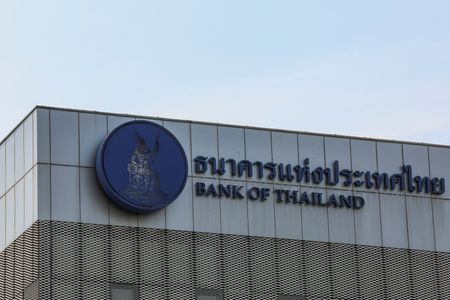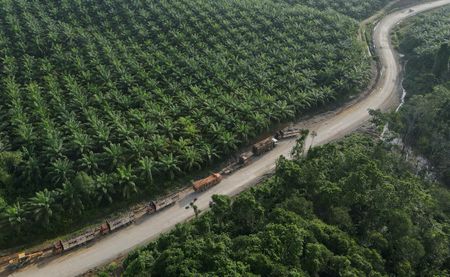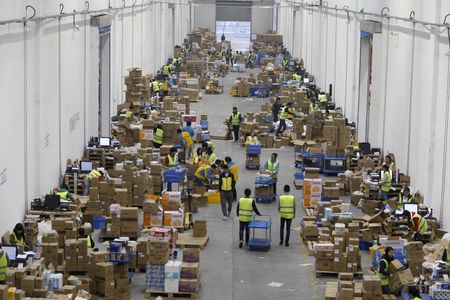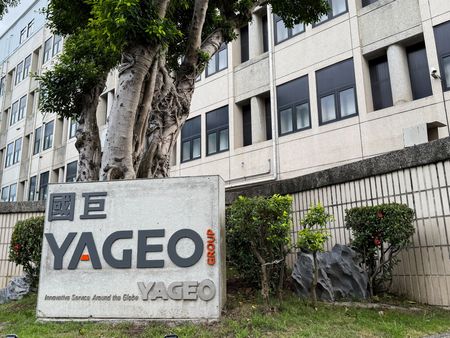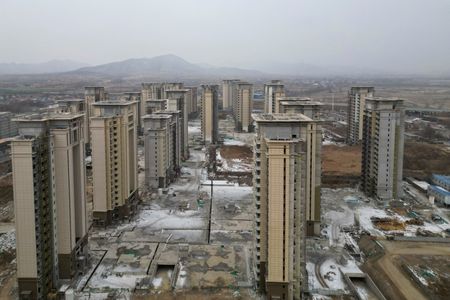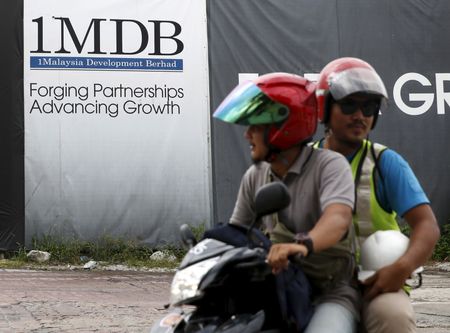By Orathai Sriring and Kitiphong Thaichareon
BANGKOK (Reuters) -Thailand’s central bank cut its key interest rate by a quarter point for a second consecutive meeting on Wednesday, as expected, seeking to support the underperforming economy which is facing fresh pressure from steep U.S. tariffs.
The Bank of Thailand’s monetary policy committee voted 5-2 to reduce the one-day repurchase rate by 25 basis points to 1.75%, the lowest level in two years. That followed a similar reduction at the previous meeting in February.
The central bank cut its growth forecast for 2025 to 2.0%, based on prolonged trade negotiations and U.S. tariffs remaining close to current rates, from just above 2.5% seen in February and 2.9% predicted in December.
It said there were risks to growth and U.S. tariffs could weigh more heavily in the second half of the year, and if the trade war escalates and tariffs are set at higher rates then growth could be just 1.3% this year.
Thailand is among Southeast Asian nations hardest hit by U.S. President Donald Trump’s measures, facing a much larger-than-expected 36% tariff if a reduction can’t be negotiated before a U.S. moratorium expires in July.
Growth next year was seen at 1.8% in the central bank’s baseline scenario and 1% in a worse case scenario.
“U.S. trade policies and potential retaliations from major economies will cause significant changes in the global economic, financial, and trade landscape,” it said in a statement.
“This process is only beginning and subject to high uncertainties, with the global economy likely to grow at a slower pace. The situation is expected to be prolonged.”
There is still monetary policy room, but not much, to support the economy, Assistant Governor Sakkapop Panyanukul told a press conference.
“The monetary policy stance has changed. We are now in a period of easing,” he said.
“Our outlook has weakened, and there are risks. Therefore, the monetary policy stance will be more accommodative.”
There is a chance that the economy could slip into a technical recession, he added. The next rate meeting is on June 25.
A ‘technical recession’ is commonly defined as two consecutive quarters of shrinkage in economic growth.
Southeast Asia’s second-largest economy has lagged regional peers for years, growing just 2.5% last year.
INFLATION, TOURISM FORECASTS LOWERED
Twenty of 28 economists in a Reuters poll had predicted the key rate would be cut this week. The other eight had expected no policy change.
The central bank also said it would closely monitor the baht currency, which rose as much as 0.4% after the rate decision, while the main stock index gained 2%. Despite the trade fears and sluggish economic demand, the baht has still gained nearly 3% this year as the U.S. dollar faltered.
Reflecting growing risks, the BOT lowered its 2025 headline inflation forecast to 0.5%, down from 1.1% seen in December and below its target range of 1% to 3%. It predicted core inflation at 0.9% this year versus 1.0% seen earlier.
The BOT cut its export growth forecast to 0.8% this year from 2.7% seen previously.
The central bank reduced its projections for foreign tourist arrivals – a key growth engine – to 37.5 million this year, from 39.5 million seen in December.
“We think today’s easing will be the last for the foreseeable future as the MPC (monetary policy committee) likely will adopt a wait-and-see approach with regards to the lingering tariff uncertainty,” said Miguel Chanco, an economist at Pantheon Macroeconomics.
(Reporting by Orathai Sriring, Kitiphong Thaichareon and Thanadech Staporncharnchai; Editing by Martin Petty and Kim Coghill)

